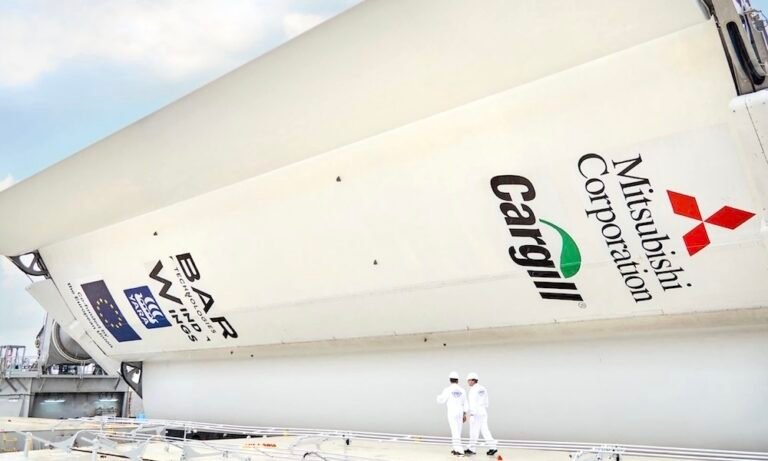Unlocking the Potential of Wind Propulsion in Maritime Transport
Suba Sivandran, director of strategy, M&A and advanced services at Bureau Veritas Marine & Offshore, sheds light on the cost-saving benefits of implementing wind propulsion technology on ships operating in Europe.
The International Maritime Organization (IMO) has recently established new measures aimed at decarbonizing the shipping industry. This marks a crucial turning point as the sector transitions from traditional fossil fuels to cleaner alternatives and innovative technologies like wind propulsion systems (WPS). In parallel, regional regulations such as the EU’s Emission Trading System (ETS) and FuelEU Maritime (FEUM) are already shaping the investment and operational decisions of shipowners and operators, driving them towards greater efficiency and the adoption of sustainable technologies.
Wind propulsion has emerged as a viable long-term solution for reducing operational costs, especially for vessels trading within the EU. Under the new FuelEU Maritime regulation, ships utilizing wind propulsion technologies can benefit from the wind rewards factor (WRF), offering up to a 5% reduction in greenhouse gas emissions for vessels where wind propulsion accounts for 15% or more of the propulsive power onboard.
Moreover, WPS can enhance a ship’s Energy Efficiency Design Index (EEDI), Energy Efficiency Existing Ship Index (EEXI), and Carbon Intensity Indicator (CII) ratings, aligning with the industry’s decarbonization goals.
The adoption of wind propulsion technology is gaining momentum, with over 125 systems installed on 57 vessels and more on the horizon. Bureau Veritas, a leading classification society, is at the forefront of verifying alternative fuels and ensuring compliance with regulations like FEUM.
Bureau Veritas’ modelling tools demonstrate the significant cost savings that can be achieved by vessels trading in the EU through the adoption of WPS technology. For instance, an ultramax vessel trading internationally in the EU could realize a nearly 20% reduction in operating costs from 2025-2040 by using wind assistance compared to traditional fuel options.
Wind assistance proves to be a cost-effective solution in the long run, competing favorably with biofuels. By 2030, the operating costs for a vessel using wind assistance and one utilizing biofuels would be comparable, with both strategies reducing costs by approximately 12% compared to conventional fuel options.
Looking ahead to 2040, a vessel using wind assistance and biofuels could cut operating costs by over 60%, highlighting the role of wind propulsion in sustainable maritime transport.
By embracing WPS technologies, vessels can lower fuel consumption, reduce emissions, and comply with stringent environmental regulations, ultimately contributing to the EU’s target of carbon neutrality by 2050. Bureau Veritas’ analysis underscores the pivotal role of wind propulsion in navigating the evolving regulatory landscape, offering a competitive and sustainable solution for vessel operators.

